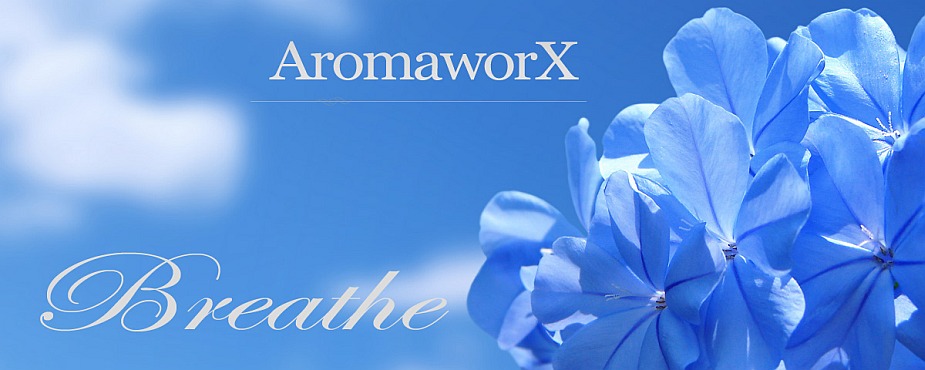Does Having Meaning In Your Life Keep You Healthy?
- Details
- Written by AndEl

SOMETHING to live for. This simple idea is at the heart of our greatest stories, driving our heroes on. It is the thread from which more complex philosophies are woven. As Nietzsche once wrote, "He who has a why to live for can bear almost any how".
As human beings, it is hard for us to shake the idea that our existence must have significance beyond the here and now. Life begins and ends, yes, but surely there is a greater meaning. The trouble is, these stories we tell ourselves do nothing to soften the harsh reality: as far as the universe is concerned, we are nothing but fleeting and randomly assembled collections of energy and matter. One day, we will all be dust.
One day, but not yet. Just because life is ultimately meaningless doesn't stop us searching for meaning while we are alive. Some seek it in religion, others in a career, money, family or pure escapism. But all who find it seem to stumble across the same thing -- a thing psychologists call "purpose".
The notion of purpose in life may seem ill-defined and even unscientific. But a growing heap of research is pinning down what it is, and how it affects our lives. People with a greater sense of purpose live longer, sleep better and have better sex. Purpose cuts the risk of stroke and depression. It helps people recover from addiction or manage their glucose levels if they are diabetic. If a pharmaceutical company could bottle such a treatment, it would make billions. But you can find your own, and it's free.
The study of how purpose influences our health largely began with Viktor Frankl, an Austrian psychiatrist who survived four Nazi concentration camps. He noticed that some of his fellow prisoners were far more likely to survive than others. "Woe to him who saw no more sense in his life, no aim, no purpose, and therefore, no point in carrying on. He was soon lost," he later wrote. After the second world war, Frankl dedicated his work to understanding the role of purpose and developed a therapy based on his findings.
Beyond Happiness
Today, researchers define purpose as a sense of direction in life -- a long-term goal set around one's core values, that makes life worth living, and shapes daily behaviour. It is a component of broader measures of subjective well-being or happiness, in which there has been a surge of interest in the past two decades. That's why, in 2012, then United Nations secretary-general Ban Ki-moon commissioned the first ever World Happiness Report, which has been updated annually since.
Measures of happiness can reflect broader social issues such as inequality, but when researchers look at the individual elements that make up well-being, they find purpose on its own has a unique influence on health.
Of course, teasing out whether it is actually purpose itself, and not the fact that purposeful people may exercise more or eat better, can be difficult. But over the past 10 years, the findings about the health benefits of purpose have been remarkably consistent -- revealing that, among other advantages, alcoholics whose sense of purpose increased during treatment were less likely to resume heavy drinking six months later, that people with higher purpose were less likely to develop sleep disturbances with age, and that women with more purpose rated their sex lives as more enjoyable. These findings persist "even after statistically controlling for age, race, gender, education, income, health status and health behaviours", says Victor Strecher, a public health researcher at the University of Michigan in Ann Arbor and author of the book, Life on Purpose.
In an analysis of 7000 middle-aged people in the US, even small increases in sense of purpose were associated with big drops in the chances of dying during a period of 14 years. A study of more than 9000 English people over 50 years old found that -- even after adjusting for things like education, depression, smoking and exercise -- those in the highest quartile of purpose had a 30 per cent lower risk of death over nearly a decade compared with those in the lowest quartile. Other studies show higher purpose cuts risk of heart disease by 27 per cent, stroke by 22 per cent and Alzheimer's disease by half.
The only reason purpose isn't a top public health priority, says Strecher, is because it somehow feels too vague or ephemeral. "It's not a construct that feels scientific enough," he says. "If this were a physical issue or a new drug or a gene, you would see lots of funding going into it."
Some of the scepticism has to do with concerns that purpose is merely a stand-in for opportunity in life, or wealth. Indeed, in recent research, Patrick Hill, now at Washington University in St Louis, did find that people with a stronger sense of purpose tended to have more money to begin with, and earn more over the period studied.
So how does that meaning, that sense of purpose, actually improve your health? In part, it may be because greater purpose makes people more conscientious about maintaining their health. But Steven Cole at the University of California, Los Angeles, thinks there's more to it. "If people are living longer, there's got to be some biology underpinning that," he says. Cole has spent years studying how negative experiences such as loneliness and stress can increase the expression of genes promoting inflammation, which can cause cardiovascular disease, Alzheimer's or cancer.
In 2013, Cole examined the influence of well-being instead. He focused on two types: hedonic, from pleasure and rewards, and eudaemonic, from having a purpose beyond self-gratification. These two aspects were measured by having participants note down their well-being over the previous week, how often they felt happy (hedonic) or that their life had a sense of direction (eudaemonic), for example. Although scoring highly in one often meant scoring highly in the other and both correlated with lower levels of depression, they had opposite effects on gene expression. People with higher measures of hedonic well-being had higher expression of inflammatory genes and lower expression of genes for disease-fighting antibodies, a pattern also seen in loneliness and stress. For people scoring highest on eudaemonia, it was the opposite. "There were surprises all around," Cole says. "The biggest surprise being that you can feel similarly happy but the biology looks so notably different."
Cole suspects eudaemonia -- with its focus on purpose -- decreases the nervous system's reaction to sudden danger that increases heart rate and breathing and surges of adrenaline. Over-activation of this stress-response system, as you see with chronic stress, causes harmful inflammation. "There may be something saying ‘be less frightened, or less worried, anxious or uncertain'," says Cole.
Purpose Pills
Strecher says to consider what you would like to be said about you at your memorial, or to identify people you would like to emulate. He is also developing an app called Jool that he hopes can eventually serve as a kind of "purpose pill". Users begin with an assessment, and then get encouragement and guidance as they go on. It is currently being tested by companies to help employees hone their sense of purpose -- and boost productivity. His team has been following an initial group of users for over a year, and they will begin randomised studies in the coming months.
There are also more formal therapies that foster purpose and meaning in life for people with conditions such as depression. For example, Dolores Gallagher-Thompson at Stanford University in California, has found that cognitive behavioural therapy can promote meaningfulness. She encourages patients to consider their legacy and how they might provide a good example for children and grandchildren.
Purpose isn't a fixed entity -- it waxes and wanes with changes in life. Many people experience a drop in purpose following retirement, for instance, but can regain it by engaging in the community, helping others and remaining sociable. And, as Hill found, the health effects of purpose are apparent whether someone is 20 or 70. "To me, that's evidence suggesting that whenever one finds a purpose it can still imbue benefits," he says. In other words, it's never too late to start seeking the meaning of life.
Liked this article? Dive deeper into personal growth and wellness! Check out CrystalWind.ca for spiritual wisdom or explore AromaWorx.ca for natural well-being tips. Spread the positivity—share this with friends on their happiness journey!
Let’s Chat! Drop Your Thoughts Below! ![]()
Disclaimer Health
All post and information provided within this blog is for educational and informational purposes only, and is not to be construed as medical advice or instruction. No action should be taken solely on the contents of this website. Please consult with your healthcare professional before making any dietary or lifestyle changes or taking supplements that may interfere with medications. Any products or information discussed are not intended to diagnose, prevent, treat or cure any illness, disease or lifestyle. Please consult your physician or a qualified health professional on any matters regarding your health and wellbeing or on any opinions expressed within this website.
Latest Articles
Dive into the Mystical World of the Crystal Wind Oracle Deck!
Get All the Enchanting Details Now!
NEW Expanded Boxed Edition!
Now with 58 Cards for Richer Wisdom!

Imagine a world of inspiration and healing, free for all—made possible by YOU!
Donate Now—Ignite the Magic at CrystalWind.ca!

Epilepsy - Finding A Cure
Your donation can make a difference!
Help us find a cure – donate now!
Unlock Your Light: Join Lightworkers Worldwide on CrystalWind.ca!
Follow Us!
Featured This Month
Cancer Mythology
The Mythology of Cancer: A Celestial Tale of Loyalty and Sacrifice Among th... Read more
Chalcedony
The Stone Of Orators Chalcedony was very popular as a decorative stone in ant... Read more
Lammas by The Hedgewitch
Although in the heat of a Mid-western summer it might be difficult to discer... Read more
Lugh - Celtic God Of The Sun
The god Lugh was worshiped in Ireland as a deity of the sun. This connection... Read more
Abalone Shell
Echos Of The Ancestors Abalone strengthens the structure of the body and th... Read more
Egyptian Zodiac/Astrology
Egyptian astrology was one of the earliest forms of astrology. The Egyptians w... Read more
Sun in Cancer
Cancer Sun Sign Characteristics Overview The name "Cancer" comes from Latin, ... Read more
































































































































































